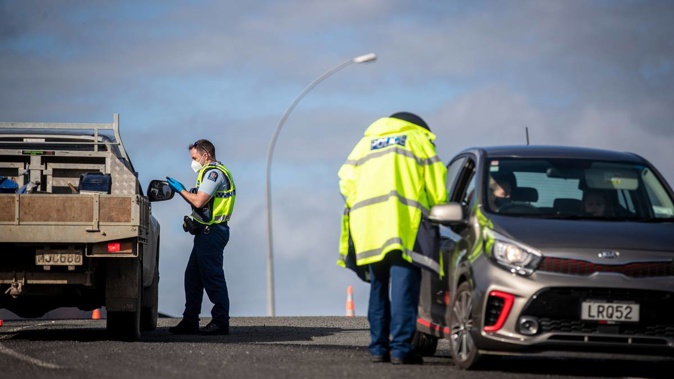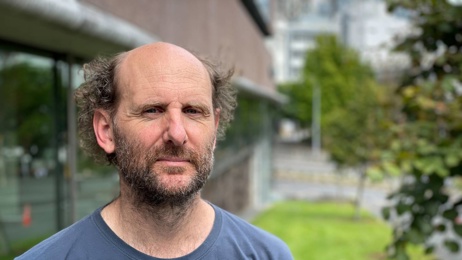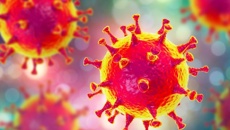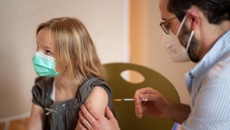
Unvaccinated people are nine times more likely to seed fresh Covid-19 outbreaks in New Zealand, finds new modelling that's prompted a plea for those who haven't had their shots to think before travelling this summer.
In his analysis, postdoctoral researcher Dr Leighton Watson used what's called a stochastic model to simulate the potential numbers of infections a fully vaccinated person could cause, compared with someone who hadn't received either Pfizer jabs.
Earlier modelling by Watson has indicated that the unvaccinated are about 3.3 times more likely to be infected with the virus – and 25 times more likely to be hospitalised with severe illness.
In his latest work, he considered what might happen if an infection was seeded in a population in which 90 per cent of eligible people were fully vaccinated – a rate close to the current national coverage of 86 per cent.
Watson pointed out that the model assumed that anyone could travel about the country regardless of their vaccination status - whereas new rules will require people leaving Auckland from December 15 to be either fully vaccinated or have proof of a negative test with 72 hours of travelling.
Still, he said there remained the risk that unvaccinated people may be able to evade spot checks and seed the virus in other regions after Auckland re-opened.
The model also didn't account for age distribution, ethnicity, or testing, tracing and isolation of cases, and assumed the cases were equally likely to interact with vaccinated and unvaccinated individuals.
Overall, it found there was a small possibility of large outbreaks developing within the first 31 days of any infection being seeded in a community.
But it was much more likely that an infected person who'd had both shots of the Pfizer vaccine would not spread Covid-19 (54 per cent chance of not seeding a new outbreak) compared to an infected, unvaccinated person (6 per cent).
Watson explained this was because the vaccine was assumed to be 50 per cent effective at preventing onward transmission as well as 70 per cent effective against infection.
In the case an unvaccinated person with Covid-19 seeded a flare-up, there was also a 54 per cent that the outbreak grew to up to 151 infections within 31 days.
"What this work really emphasises is the importance of unvaccinated people being tested before they travel around the country this summer," Watson said.
"Because, even if someone has Covid-19, if they've been vaccinated, they're half as likely to transmit it."
His modelling further suggested that unvaccinated people would be responsible for around two thirds of all infections in a population with 90 per cent coverage.
By contrast, spread between fully vaccinated people would only account for about 18 per cent of all infections.
"Vaccinated people are 1.9 times more likely to be infected by someone who is unvaccinated, despite there being 3.7 times fewer unvaccinated people than vaccinated people," he said.
From Friday, Auckland will move out of lockdown after more than three months and into the red traffic light due to being the epicentre of the virus.
The new framework is based around high vaccination rates enabling living with Covid-19 in the community, with three levels of restrictions based on the risk posed - green, orange and red. It also relied on the use of vaccination passports at more high-risk settings.
Northland, Auckland, Taupō and Rotorua Lakes Districts, Kawerau, Whakatāne, Ōpōtiki Districts, Gisborne District, Wairoa District, Rangitikei, Whanganui and Ruapehu Districts are also moving to the red traffic light due to low vaccination rates and because large numbers of visitors - including Aucklanders - are expected in these areas over summer.
Some of these areas moving into the red traffic light system on Friday have not even recorded any cases of Covid-19 in the recent outbreak.
Ministry of Health chief medical officer Andrew Connolly said research already showed how vaccination could "significantly" slash and slow spread in households and communities.
"A very recent study shows when a vaccinated person was infected they're nearly two out of three times less likely to infect unvaccinated households," he said.
"A vaccinated person who catches Covid has got around a 63 per cent less likely chance of transmitting to the household.
"If you add in the fact that most vaccinated people don't get the disease, the modelling suggests a more than 80 per cent reduction in household transmission."
Take your Radio, Podcasts and Music with you









